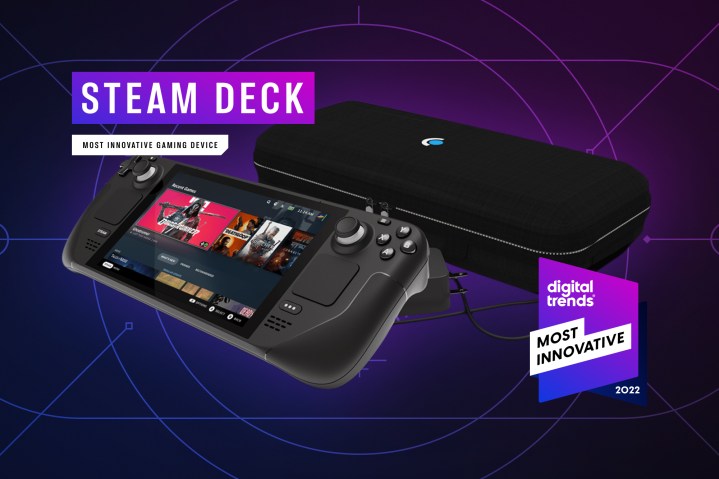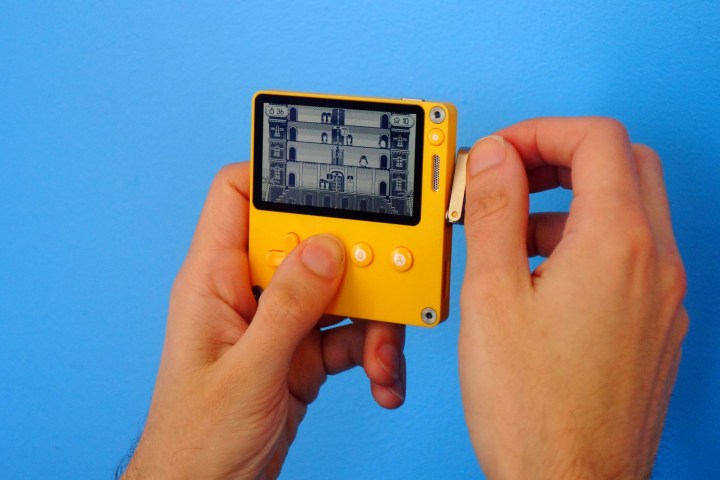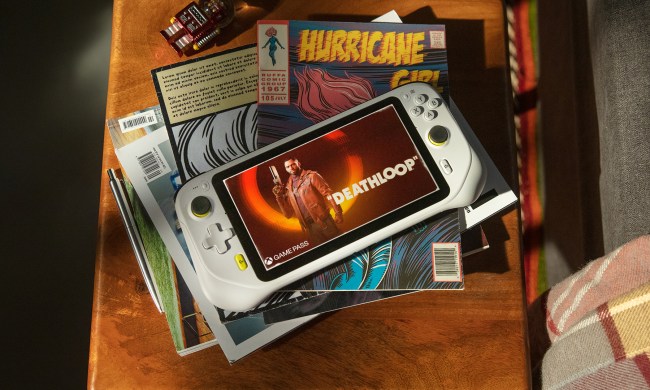A year like 2022 would usually be considered an off year for gaming tech. We’re two years past the latest console launch, a time that tends to be dominated by peripherals and add-ons. So it’s a surprise that this year ended up being a landmark one for gaming tech. That’s because companies began rolling out new approaches to gaming technology that targeted both accessibility and portability. From devices built around cloud gaming to portables that changed the way PC gaming fundamentally works, the history books may look back at 2022 as the start of a revolution. Here’s what tech dared to push the industry forward, even if it meant taking an experimental risk to do so.
Want to see the rest? Check out our full list of the most innovative tech products of 2022!
Winner: Steam Deck

For some gamers, PC is the only way to play. Unlike a console, PCs offer much more flexibility when it comes to customizing an individual game to one’s liking. However, PCs can be restrictive, requiring you to be tethered to a desk to use an expensive rig. If you want to take your games on the go, you likely have to invest even more money in a good gaming laptop. In the era of the Nintendo Switch and cloud gaming, that lack of portability left the PC feeling less appealing as a gaming platform.
Valve solved that problem with the Steam Deck. Its own spin on the Switch, the supersized device is essentially a PC in a traditional portable form factor. It lets players access their entire Steam library on the go, and its Linux browser allows it to work as an emulation box too. What’s especially notable, though, is that the Steam Deck still offers the customization that makes playing on PC so appealing. It isn’t a static device like the Nintendo Switch, but rather one that can be tinkered with via a variety of settings.
The Steam Deck has plenty of problems that’ll likely have to be fixed in a second iteration. Its giant form factor leaves much to be desired and it has a fair amount of tech issues that can make play sessions frustrating. Growing pains like that are to be expected from a piece of experimental tech, though. For all its quirks, the Steam Deck has fundamentally changed the way I play PC games — something that no piece of gaming tech has done since the Switch launched five years ago.
Runner up: Logitech G Cloud Gaming Handheld

Although it has a very niche use case, there’s no denying that the Logitech G Cloud Gaming Handheld is an innovative device. Crafted by Logitech and Tencent Games, it’s a handheld built specifically for cloud and mobile gaming. Xbox Cloud Gaming and Nvidia GeForce Now have native apps for the system, while others like Steam Link ensure that it fits anyone’s cloud gaming needs.
It’s built like a Nintendo Switch, but doesn’t need to grapple with the power constraints of that handheld. It sports a battery life of nearly 12 hours, which is incredibly impressive for a handheld gaming device. The Logitech G Cloud Gaming Handheld is the first device of its kind, but more are to come. As cloud gaming grows in popularity, this might just be the progenitor of a new type of gaming device.
Honorable mention: Playdate

I’m not sure that I’ve ever used a video game console as creative as the Playdate. The banana yellow oddity is the very definition of niche with its odd crank control and subscription-based game model, but its willingness to go weird is what makes it so special. Playdate developers are forced to think small, creating GameBoy-style games that have to rethink the fundamentals of control. The limited visuals and crank control create a restriction that leads to some true innovation.
Some of my favorite video games released this year are Playdate titles. Hyper Meteor is a fantastic spin on Asteroids, Pick Pack Pup is one of the year’s best pure puzzle games, and Flipper Lifter uses the system’s crank to create an ingenious elevator game. Even the Playdate’s weakest titles are still a blast to play, making it feel like the world’s best indie game jam housed within a playful device that fights back against the gaming industry’s desire to go bigger.



